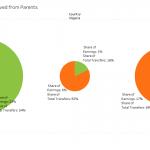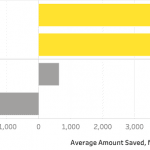Ag Stigma Be Damned: Flipping the Script for Young People, Farming and Investment
Close your eyes, and imagine that you’re a young man or woman living in one of the world’s many farming communities.
Perhaps you’re the daughter of generations of coffee farmers in the highlands of Honduras, or the youngest son of a family who grows macadamia nuts on the Kenyan savannah. But if you’re like the majority of the world’s smallholder farmers, you are likely disconnected from the global markets that offer you a pathway to prosperity. Maybe your family sells its coffee beans to a coyote, a trader who can get your crop exported abroad but who takes a substantial cut of your earnings to do it. Or perhaps your parents’ macadamia crop suffers through a two-year drought, and when the crops fail, you don’t have a plan B.
Like any young man or woman, you have dreams – ideas for where you want your life to go. But if you’re growing up in one of these farming communities, you’ll likely face significant obstacles to achieving them.
There are 1.8 billion people between the ages of 15 and 24, 90 percent of whom live in the developing world and 75 percent of whom are underemployed. With opportunities in their own communities coming with significant challenges attached, their career goals become synonymous with leaving the place where they grew up.
It doesn’t have to be this way. At Root Capital, we’ve been asking questions that challenge the status quo: Why do young people see opportunities in cities, but not in their home villages? Why is a desk job more prestigious than a job in agriculture? Can agriculture be a career that young people aspire to, rather than one they’ll do anything to avoid?
We’re still exploring the answers to those questions. But one thing’s for sure: The answer to the last one is a resounding “yes.” And the key to making agriculture something young people view as an opportunity? Innovative agricultural businesses.
Why is it bad for young people to leave parents’ farms behind?
In many farming communities in the developing world, agriculture really isn’t working for young people. It’s high-risk, low-paying and incredibly difficult. It’s little wonder that people who have watched their parents struggle for decades to eke out a living through farming might imagine that better opportunities lie in their country’s capital city – or, for that matter, in Europe or the United States.
And therein lies the second part of the problem – these opportunities that young people envision when they leave their communities behind often don’t exist either. Many of them end up in cities that lack the infrastructure or economy to support a large influx of rural workers. And those who look further? The scores who drown on the boats overloaded with human cargo that capsize in the Mediterranean, or that brave the dangerous freight trains that hurtle north through Mexico in hopes of reaching the United States – those are all too often young people from rural communities who once dreamed of a better life.
This problem isn’t new. But it’s becoming more and more urgent. Smallholder farmers are getting older – the average age of a coffee farmer is 60 – and fewer and fewer young people are replacing them. At the same time, the global population is rising rapidly, and will almost certainly surpass 9 billion by the year 2050. That rising population is going to create a huge demand on the world’s agricultural systems – and if young people don’t see a place for themselves in those systems, that demand is going to be difficult to meet.
Where do agricultural businesses fit in?
The droves of young people searching for opportunities outside of their hometowns are driven by a single narrative: Seek opportunities elsewhere because they don’t exist at home. The agricultural businesses we work with are flipping the script by asking: What if opportunity flourished?
These businesses recognize they’re being sapped of the young talent needed to maintain long-term viability. It’s a challenge they need to address in order to survive. And like any business does in the face of challenges, our clients are adapting. They’re innovating. And they’re making agriculture work for young people in their communities.
In Karatina, Kenya, The Village Nut Company is looking beyond a narrow focus on farming to create long-term careers in a country with the highest youth unemployment rate in East Africa. In addition to raising incomes for the 9,000 macadamia farmers the firm sources from, they also hire promising young leaders straight out of the local university, and ensure that they have opportunities to advance within the company. “[My mother] always told us… to take care of the youth in our community,” says Mary Muhara, co-founder of The Village Nut. Muhara took her mother’s advice. And today, it’s paying off. For example, David Wanyoike graduated from the University of Karatina as a certified public accountant. The company hired him right away – and now he manages its finances.
Halfway around the world in Ocotepeque, Honduras, coffee cooperative COCAFELOL teaches its members to cultivate a passion for coffee even as they cultivate the crop itself. For children as young as 7 years old, the cooperative offers after-school programs designed to “inspire a love and passion for coffee among the children of our community… that we can transfer to the next generation.” When the children enter their teens, they start learning practical skills related to coffee farming and the management of a coffee business. Upon graduating from high school, these young people can choose their own path; COCAFELOL offers specialized courses in financial management, organic agriculture and agronomy, as well as cupping and barista training. By developing the skills and passion that young people need to build careers around coffee – and then ensuring that career opportunities exist in the cooperative for the young people they train – COCAFELOL’s leaders prove to young people that they can have rewarding lives working in agriculture. Stigma be damned – in Ocotepeque, agriculture is cool.
What’s next?
Gender inclusion. Farmer resilience. And now, opportunities for youths. Time and time again, we’ve seen the agricultural enterprises we work with lead the way when it comes to investing in the sustainability of both their communities and their bottom lines. What they need now, more than anything, is support.
If a business doesn’t have the working capital it needs to pay its suppliers and employees on time, it won’t be able to prioritize educational programs that benefit the people who might end up working there. If its staff members aren’t trained effectively, they can’t create sustainable careers in agriculture for these same young people.
Recognizing this urgent need, Root Capital offers agricultural businesses the capital they need to run smoothly and the training they need to maximize that capital’s effect. It’s not particularly flashy or sexy – but it brings essential financial services and training to businesses that need them badly, and often can’t find them anywhere else. And it works.
Before they started working with us, COCAFELOL’s staff was intimidated by the level of detail required by our loan application. Today, they confidently manage a multimillion-dollar budget. The Village Nut has increased its loan size by 50 percent each year since 2015, meaning it can access more capital that it can funnel into ongoing improvements to the business. Both have invested in the young people in their communities. Both have repaid their loans in full. And both continue to work with us today.
The millions of young people in communities like Karatina and Ocotepeque represent either a huge demographic challenge or a massive opportunity. And by supporting agricultural businesses that recognize the necessity of investing in the next generation, we can ensure that opportunity is unlocked.
Will McAneny is communications associate for Root Capital.
Top photo: Young managers participate in a financial management training hosted by Root Capital. Photo credit: Stuart Freedman/Argidius Foundation.
Homepage image: Ministério do Desenvolvimento Social via Flickr.
- Categories
- Agriculture, Education, Investing



